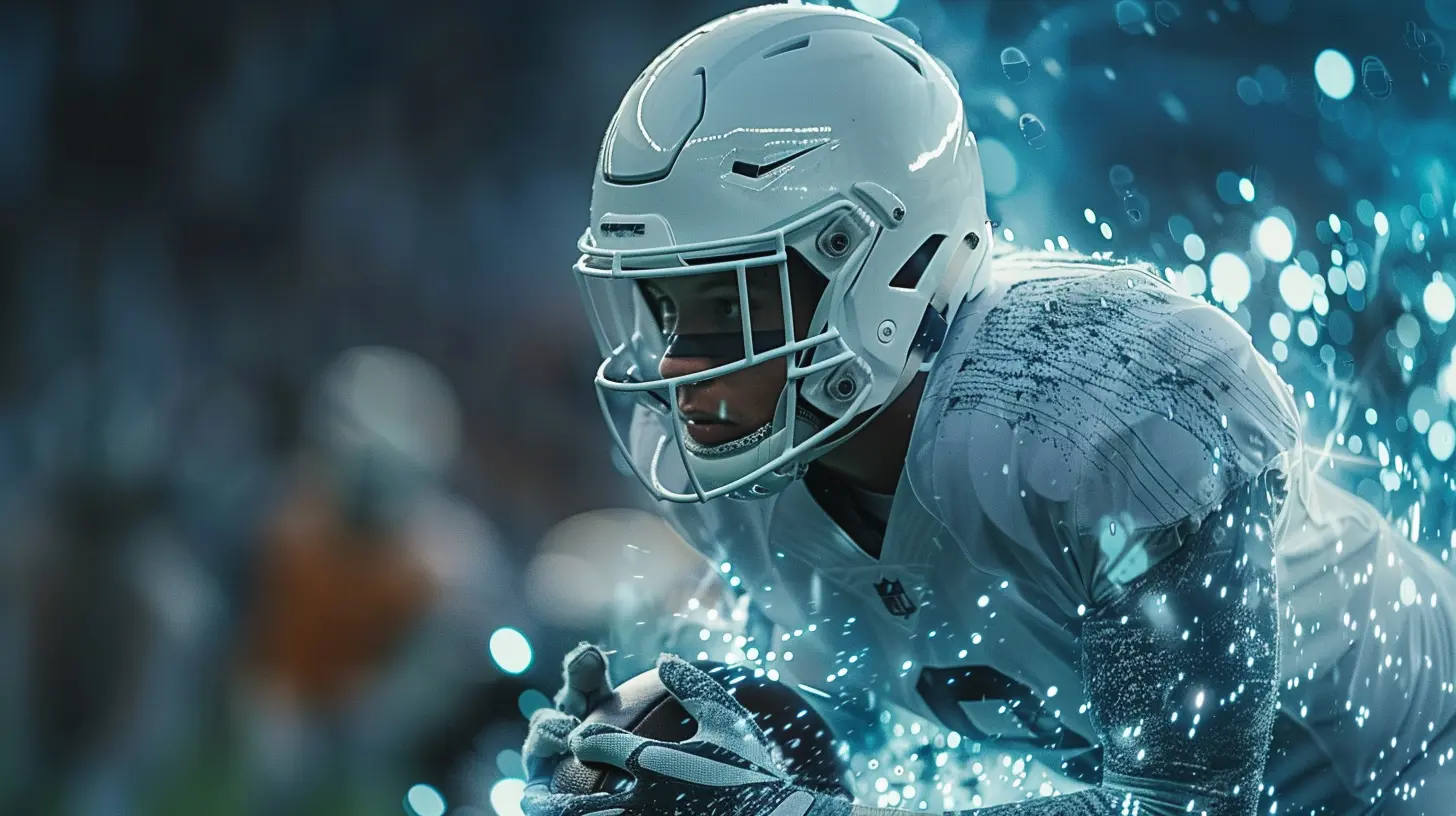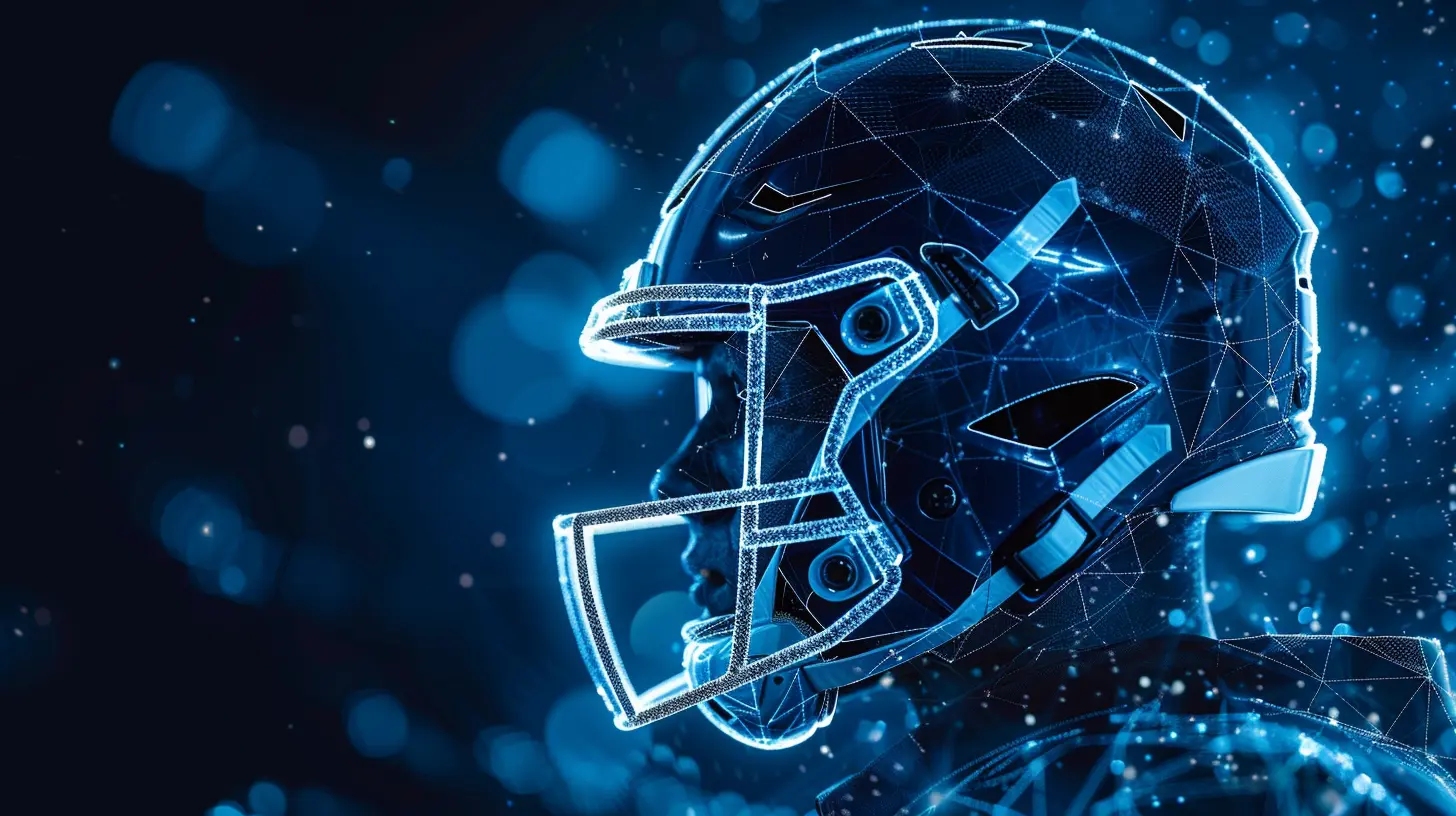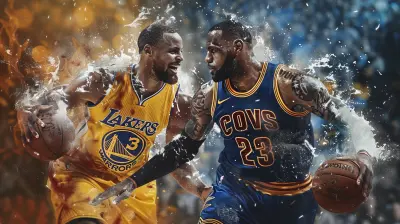Using Machine Learning to Predict Sports Outcomes and Enhance Strategy
10 November 2025
You ever wonder how some teams just seem to always make the right moves? It’s like they already know the outcome before the match even kicks off. Some of that magic is no longer just instinct or guesswork—it's data, algorithms, and a little thing called machine learning (ML). Yeah, we’ve officially entered the future of sports.
In this article, we’re diving headfirst into how machine learning is being used to predict sports outcomes and give teams a real edge in strategy. It's not just number-crunching. It's like having a crystal ball that's actually backed by science.
What Is Machine Learning, Really?
Let’s break it down. Machine learning is a type of artificial intelligence that teaches computers to learn from data and make predictions or decisions without being explicitly programmed to do so.Think of it like training a rookie player. At first, they don’t know much. But with enough practice, game footage, and coaching, they start recognizing patterns. That’s exactly what machine learning does—only faster and with a way better memory.
How Machine Learning is Changing the Game
Whether it’s football, basketball, baseball, or even eSports, machine learning is becoming a game-changer (pun 100% intended). Here's how:1. Predicting Match Outcomes Like a Sports Oracle
Imagine knowing the probability of a win even before the players step onto the pitch. Sounds wild, right? But ML models can analyze years of historical data—player stats, team dynamics, weather conditions, injury reports—and use it to predict match results.These predictions aren’t perfect (yet), but they can be scarily accurate. Bookmakers have already been using predictive models for years, but now teams and fans are tapping into the power too.
2. Enhancing In-Game Strategy
Let’s get one thing straight: strategy in sports isn’t just about gut feeling anymore. Coaches and analysts are now using ML to fine-tune game plans.By studying opponents’ strengths and weaknesses, machine learning can suggest tactical changes in real-time. For example, in basketball, it might recommend exploiting a mismatch when a defender fatigues. In football, it might flag that a defender is consistently off-position after the 70th minute. It's like having a second head coach made of code.
3. Player Performance Analysis
ML doesn’t just focus on teams—it zooms in on individual players too. Think about it: training schedules, nutrition, heart rate, speed, sleep patterns—there’s so much data available.By feeding all this into a machine learning model, teams can predict when a player might get injured or when their performance might dip. That means better training loads, smarter substitutions, and longer careers.
4. Scouting and Recruitment
Drafting a new player used to be a mix of talent-spotting and gut instinct. Now? It’s all about the data.Machine learning can scan thousands of players across leagues and levels, comparing performance metrics, play styles, and even how well someone might fit into a team’s system. Imagine Moneyball on steroids.
5. Fan Engagement and Predictions
ML isn't just for the pros—fans are feeling the benefits too. Fantasy leagues, sports betting, and even social media content are being shaped by predictive models.Imagine getting personalized predictions for your fantasy football team or custom highlight reels based on your favorite plays. This isn’t just a dream—machine learning makes it happen.
Real-World Examples of ML in Sports
Still think this all sounds a bit sci-fi? Let’s talk real-life examples:- IBM Watson in Tennis: IBM’s AI-powered Watson crunches data during matches to deliver real-time analysis and even predicts key moments before they happen.
- Stats Perform: They use predictive modeling to generate win probabilities and performance metrics across dozens of sports, helping teams and media outlets alike.
- Zebra Technologies in the NFL: They have sensors in players' pads and footballs that track movement and provide data for predictive analytics.
- Liverpool FC: They're known for using advanced data analytics and machine learning to recruit players and manage workloads.
This isn't the future—it's happening now.
The Tech Behind the Predictions
Now, if you’re curious about the “how,” here’s a quick peek behind the curtain:Data Collection
Everything starts with data. Tons of it. Player stats, team performance, weather, venue, referee tendencies—you name it.Data Cleaning
Not all data is useful. Some of it’s just noise. ML experts have to clean and organize this data before feeding it to algorithms.Algorithms and Models
This is where the magic happens. Models like decision trees, neural networks, and support vector machines (sounds fancy, right?) analyze the data and start finding patterns.Training and Testing
Just like athletes, these models need practice. By training on past data and testing their accuracy, data scientists tweak the models until they get it right.Continuous Learning
Best part? Machine learning models get smarter over time. The more data they get, the better they become. It's like having a coach that never stops learning.Challenges of Using Machine Learning in Sports
Let’s get real, though. ML isn’t perfect. There are speed bumps.Data Limitations
Some sports just don’t have enough reliable data, especially lower leagues or amateur levels.Unpredictable Human Factors
Players are human. Emotions, injuries, motivation—these are tough to quantify. ML can’t always account for the human heart.Ethical Concerns
With great data comes great responsibility. There are concerns over privacy, especially with wearable tech tracking players 24/7.So, Can ML Really Predict the Future?
Here’s the thing: machine learning doesn't "know" the future. But it gives us better tools to make educated guesses. It can shift the odds in your favor, highlight trends you never saw, and offer insights that make strategy more effective.It’s not about replacing coaches or players—it’s about giving them superpowers.
The Impact on Sports Strategy
Let’s bring this full circle. Strategy in sports has evolved. It’s no longer just art—it’s science too.By blending intuition with machine-generated insights, teams can craft smarter game plans. It’s like adding GPS to a road trip. You still make the final call, but now you're not driving blind.
Imagine a football coach getting live alerts: “Opposition’s left-back is slowing down.” Boom—make a sub and send your fastest winger into the zone. That kind of insight could mean the difference between a draw and a win.
What's Next?
Machine learning is just getting started. With advancements in wearable tech, 5G, and cloud computing, real-time data and predictions will only become faster and more accurate.We might reach a point where AI gives mid-game predictions and fans can interact with live probabilities during matches. Heck, maybe even your smart TV will start calling plays.
Final Thoughts
Here's the truth—sports will always be unpredictable. That’s the magic of the game. But that doesn’t mean we can’t play smarter.Machine learning won’t take away the emotion, the drama, or the human element. It just helps us understand the game better, prepare with precision, and make sure we leave a little less to chance.
So the next time your team nails a perfect play or pulls off a comeback, just remember—it might not be luck. It might be the algorithm whispering in the background.
all images in this post were generated using AI tools
Category:
Sports InnovationsAuthor:

Umberto Flores
Discussion
rate this article
1 comments
Tank Walker
Embracing machine learning in sports not only revolutionizes predictions but also sharpens strategies, pushing teams to new heights. The fusion of technology and athletics inspires innovation and adaptability, ensuring that the game continually evolves. Exciting times lie ahead for sports enthusiasts!
November 19, 2025 at 3:23 AM

Umberto Flores
Thank you for your insightful comment! I completely agree—machine learning is indeed transforming sports by enhancing predictions and strategies, paving the way for a more dynamic and innovative future in athletics. Exciting times ahead!


